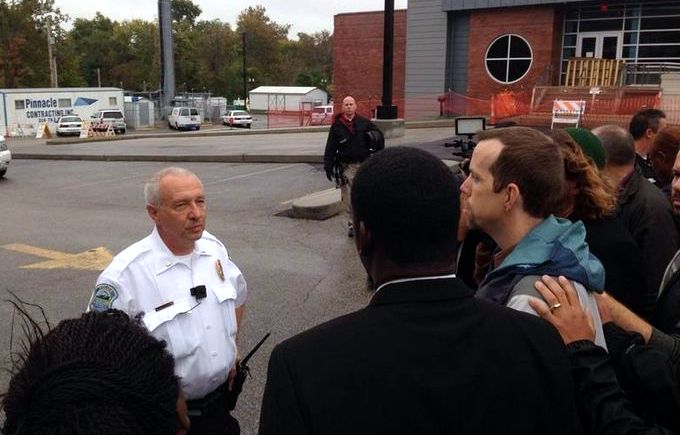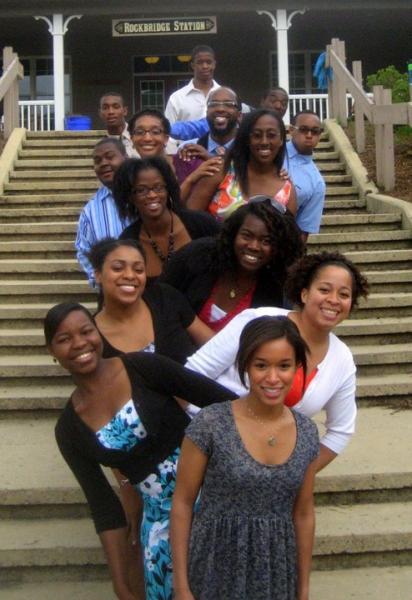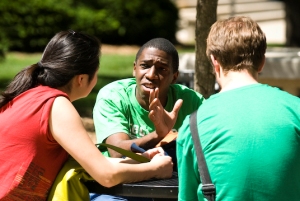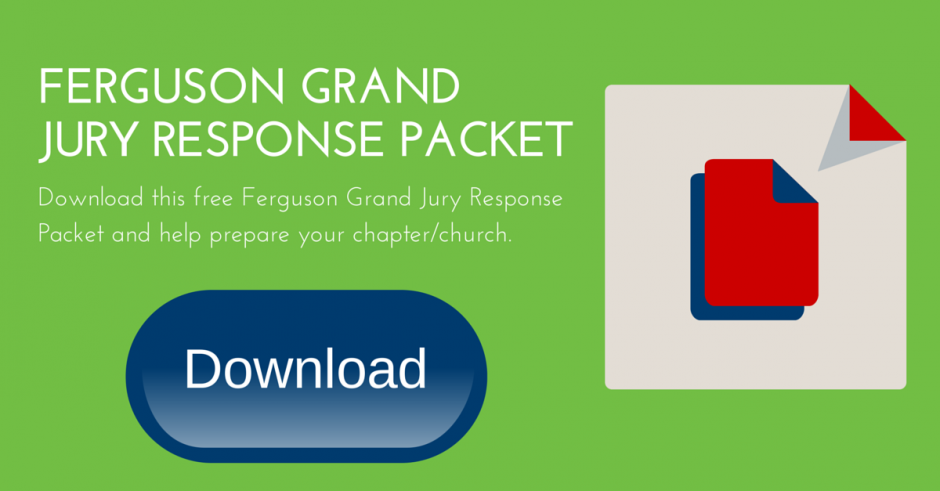
A few weeks ago I chose to be arrested with more than 30 other faith leaders calling the police department and our city to repentance.
My journey did not start however with participating in non-violent civil disobedience on October 13th. The time of confession before the march, the invitation I personally gave a police officer for his confession, the four hours I stood in the rain, the act of crossing the police line, my reception of arrest and what transpired for the next 6 hours was built on a foundation:
- In part, it started with my dad’s challenge to me as a teenager to real engagement with the diversity of folks around me.
- My journey deepened through my InterVarsity experience in college,
- My training in a Gospel choir as a young staff,
- My chance to walk alongside many black students in discovering Jesus,
- My work to raise a witness amongst black students across the country.
My Journey with Ferguson
But let me take you to August 11, two days after Michael Brown was shot and killed.
As I was driving to the health club and first heard the reports, then delved deeper online, my first response was not grief, but shame.
Why shame?
Too often the White evangelical Christian community is silent when it comes to the systemic brokenness that exists in our churches, communities, governments, police forces, and, yes, our universities.
Because I preached on August 10th at my church and did not mention Michael Brown because I was unaware, disconnected from this tragedy in my city. I was ashamed because I had missed an opportunity to say that the killing of a Black teenager matters to us as a body of believers. I was aware that far too often the White evangelical Christian community is silent when it comes to the systemic brokenness that exists in our churches, communities, governments, police forces, and, yes, our universities.
But in the days since his death, I have experienced:
- Sorrow: with InterVarsity colleagues who fear potential police aggression against them as they drive to fundraising appointments
- Confusion: as I seemed to be 10 hours behind finding out about demonstrations
- Clarity: as God opened up opportunities to engage
- Dissonance: as I juxtaposed seeing teenagers walking with signs to have their voice be heard and a Target parking lot full of 200 police cars waiting to deploy against them
- Frustration: at disagreements of those in my disperse network
- Anger and confusion: at insufficient answers and the silence.
One thing that is clear on the ground is that there is a tremendous disconnect between a segment of the black youth most impacted by systemic oppression and the faith leaders of any ethnicity. This disconnect has led to anger at and abandonment of the church. Ferguson and the response highlights issues, including this disconnect, that have existed for many years but now have a light shining on them.
3 Reasons Ferguson Matters to our Ministry on Campus
I want to reflect on how the realities that led to the killing of Michael Brown and the subsequent outcry connect to our vision as an organization.
 1. This is about seeing students and faculty transformed.
1. This is about seeing students and faculty transformed.
In the aftermath of Michael Brown’s death the black youth that I see on the front lines are college-aged black students. Many of them are bitter against the church for seemingly abandoning them. Many are going to campuses – technical schools, for profit colleges, HBCU’s, and community colleges – campuses where we traditionally have not been present.
In fact, Michael Brown was headed to a campus where there is no InterVarsity or any other Christian ministry present. I bear the responsibility for this as a leader in St Louis.
Will we allocate our time at this crucial moment to overlooked campuses in our cities to see students and faculty transformed in these places?
2. This is about seeing campuses renewed.
One of the challenges that is felt in InterVarsity recently is the issue of campus access. We desire that our campuses would be open to us and others to continue the broad-based conversations on campus about true life, righteousness, and love of neighbor.
Would we not have greater integrity in our call for open access for us on campus if we were also advocating for those whose access is essentially blocked?
The reality, though, is that access to campus is essentially blocked for a segment of the population, due to the criminalization of Blacks and Latinos, continued immigration inaction, lack of economic diversity of many institutions that we serve at, and poor campus environments for minority students.
Would we not have greater integrity in our call for open access for us on campus if we were also advocating for those whose access is essentially blocked?
This type of direct action toward specific campus renewal would be a new script for us as a movement. Often we engage renewing the campus primarily by working toward seeing as many students and faculty transformed as possible and hoping for positive effect on campus renewal, but could it be that as we pursue specific renewals of our campuses our students and faculty will be transformed in the process?
 3. This is about seeing world changers developed.
3. This is about seeing world changers developed.
The layers of issues that contribute to communities feeling trapped in cycles of poverty and the continued impact of racism in the institutions in our country is immense. It is our alumni, together with many others, who can begin to dismantle the systems of injustice as they engage in law, policing, government, health care, teaching, etc.
How can they get the training to know how to follow Jesus as Savior and Lord in this work?
Let’s begin as fellowships to engage it now. Here are four questions to get us started:
- How can we engage with power structures in our society?
- How do I use my vocational pursuits in ways that can lead to the kingdom of God coming?
- What does it look like to form coalitions for change?
- How to I begin to be truly reconciled with others so that I mourn when they mourn?
This is the type of engagement that will see our students truly be formed for the next stage in their journey as world changers.
The issues we face are not new with the killing of Michael Brown, however this moment provides a window for deeper engagement as a movement.
Will we seize it?
